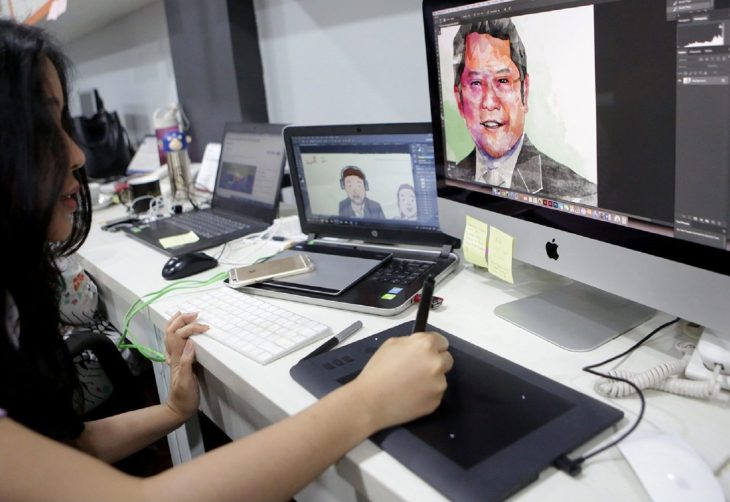New York, 10 March, 2021: Emerging Media Opportunity Fund I (EMOF), the world’s first private equity fund for independent media, is fully deployed, with its portfolio clients delivering social impact to a combined audience of more than 118 million people.
Launched by Media Development Investment Fund (MDIF), a New York-based impact investment fund for independent media, and closed at $12.9 million in December 2017, EMOF provides growth-stage financing to media in emerging markets that deliver social impact. It offers companies an alternative to capital that might seek to distort or influence editorial independence, whether for political or economic gain.
Independent media are vital to social, political and economic development. EMOF investees expose corruption, hold governments to account, shine a light on social issues such as the environment and LGBTQ+, and help ensure fair elections. COVID-19 has brought the importance of their work into even sharper focus, with audiences relying on them for reliable news and information on the pandemic.
EMOF has invested in 10 companies in six countries where access to independent news and information is under threat, with a focus on India, Indonesia and Latin America. It takes an expansive view of media, with investees ranging from digital outlets publishing investigative journalism to a social tech company and a citizen engagement app.
Here are some examples of how EMOF investees are positively impacting their communities.
Exposing corruption and holding authorities to account
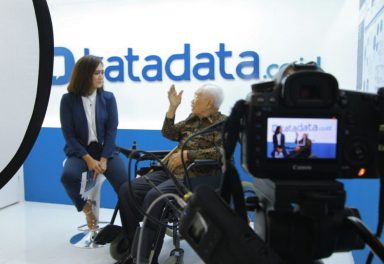
The World Economic Forum estimates that corruption costs the global economy more than US$2.5 trillion a year. Moreover, it impacts disproportionately the most vulnerable in society, while also undermining the rule of law and trust in government. EMOF investees play an important role exposing corruption in their communities.
In Indonesia, as a major conglomerate prepared to carry out a massive real estate project costing $21 billion, an investigation by digital news and data site Katadata found that the company had begun building and marketing the development project before property permits had been issued. After a year of investigation, the anti-graft agency arrested nine people, including a top district government official, on bribery charges related to facilitating permits for the project. During a sting operation, investigators found unlawful permit documentation and confiscated $100k that had been intended for bribes.
Exposing corruption is part of media’s wider role of ensuring that people in positions of power are held to account. Studies show that there is a close correlation between independent media and accountable government, brought about not only by exposing wrongdoing, but also facilitating dialogue between citizens and their governments.
For example, Brazil’s northeastern city of Teresina partnered with citizen-to-government engagement platform Colab to create an innovative bottom-up accountability system. Colab’s app allows the public to demand services and report issues, from housing and transport to adaption to climate change, and rate public services. Of all requests that came through Colab’s Teresina project, 70% were resolved, a much higher proportion than alerts coming from traditional channels, such as city hall’s e-mail and telephone. Public feedback directly fed into improved urban services, such as the implementation of a new traffic scheme that offered greater safety to pedestrians and alleviated congestion.
Examining social issues
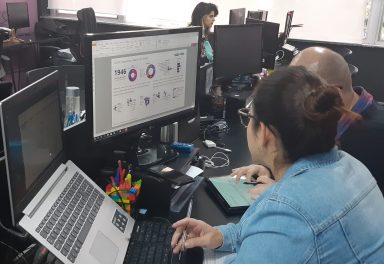
Independent media shine a light on social issues that are under-reported by their establishment counterparts, challenging prevailing attitudes to issues such as gender and minorities. In doing so, they support justice and equality and their campaigning contributes to practical changes that improve people’s lives.
For example, digital news site Scroll revealed that a former Indian Supreme Court employee had accused a serving Chief Justice of sexual harassment and that she, her husband and brother-in-law had all been suspended from their public sector jobs. The Supreme Court set up an in-house committee to look into the allegations, with the accused judge appointing himself as its Chair. Though protests forced the accused judge to step down, the committee quickly cleared him of wrongdoing. However, continued coverage of the case led to further protest, which led to the reinstatement of the woman, her husband and brother-in-law and a new impartial probe.
In Argentina, hundreds of people die of skin cancer every year, with most melanoma cases attributed to UV exposure. Red/Acción explored the high costs of preventive measures, particularly for skin cancer survivors and people with high risk factors. Following the reportage, an assemblywoman presented an initiative to the provincial government of Buenos Aires to include sunscreens of factor 30 or more in the regional healthcare coverage of state workers, a measure that would help thousands of low-paid workers.
Supporting fair elections
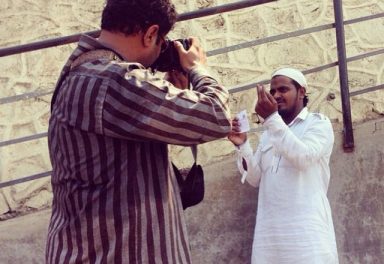
Independent media are the cornerstone of democratic elections, providing a platform for debate and a source of reliable information on policies so people can make informed choices. Voters also need to have their voices heard without fear of reprisals and have a right to know the character of who they are voting for.
In 2019, Scroll covered India’s multi-phase general elections, local elections and numerous by-elections. Reporters travelled to Jharkhand, where there was a strong local protest movement during state assembly elections. The outlet revealed how, as a part of a crackdown on the movement, police filed cases against 10,000 people using a colonial-era sedition law that carries a maximum penalty of life imprisonment. The story was cited by a senior advocate before the Supreme Court and the leader of the main opposition party. Just a day after coming to power, the new local government in Jharkhand dropped all cases against the 10,000 accused.
In Indonesia, the country held the world’s biggest single-day elections in 2019, combining presidential, parliamentary and regional votes, with incumbent President Joko Widodo winning a second term. Ahead of the elections, legal news and information site Hukumonline broke the news about a Supreme Court decision that enabled ex-graft convicts to run as legislative candidates. Thanks to this media coverage, the issue was raised during the first presidential debate and it became a contentious point during the election, with 40 candidates from 16 political parties publicly revealing that they had been convicted of graft.
Combatting COVID-19
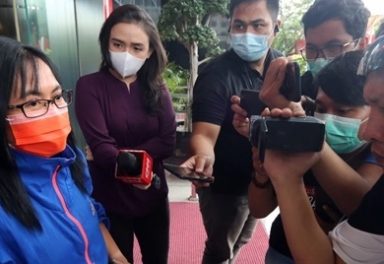
Since the onset of the COVID-19 pandemic, independent media globally have seen their audiences grow as people seek out news and information they can rely on. EMOF investees are no exception, with official media accounts sometimes being unreliable or deliberately misleading. While health information is of course very important, the pandemic has impacted people’s lives in many ways. EMOF have contributed to the wellbeing of their societies in very different ways.
SHEROES, for example, is a social media platform for women with 22m users, providing a safe digital social space as well as access to information and expert advice on issues like sexual health, education and careers. During the pandemic, it mobilised more than 400 women in Delhi to work as non-medical volunteers, talking to patients and providing them with emotional and practical support. It also helped women across the country to manage the challenges of reduced income, for example helping 100,000 become micro-entrepreneurs and 10,000 set up as remote workers. It also provided a pro-bono helpline addressing issues such as domestic violence, divorce, careers and sexual abuse. By early 2021, SHEROES had answered more than 100,000 health queries through the platform and counselled half a million through a helpline.
Also in India is Josh Talks, a media platform that seeks to unlock human potential by inspiring, informing and upskilling young people, mobilising youth for gender equality and sustainability, and promoting business. It has supported millions of people during the pandemic across a range of areas. For example, working with partners including Facebook and UNDP, Josh Talks hosted a series of webinars entitled, #StrongerTogether. The webinars facilitated a conversation between policymakers, industry leaders and the public about concerns surrounding COVID-19, such as mental health and wellbeing, the impact of virus on small and medium businesses, and the need for social protection programmes to help entrepreneurs post-pandemic.
In Argentina, Red/Acción focuses on providing journalism with purpose and impact, a service that has been greatly in demand during the pandemic. Early on, it published a Guide to Living in Times of Coronavirus to provide its audience with practical information and advice. This included a Financial Assistance section detailing the various benefits launched by the government and explaining how to access them. A How to Help section provided details of various volunteer community efforts so that those who wanted to help could do so and those who needed help could find it. Red/Acción also created a community outreach section for those who needed food and for those who were able to provide it. Their offer to donate a box of groceries to someone in need for every new person that became a Red/Acción member not only boosted membership, but also led to more than 300 food boxes being given to people in need.
Brazil has been hit harder by COVID-19 than any other country in Latin America. More than 100,000 people died in the first six months of the pandemic, with critics accusing President Jair Bolsonaro of trivialising the issue and flouting World Health Organization guidelines. In an attempt to reduce criticism as cases continued to soar, the government stopped disclosing comprehensive data on coronavirus cases and deaths. Civic engagement app Colab.re believed that more not less data was vital if people and local authorities were to make informed decisions about confronting the virus. It created Brazil without Corona that helps track coronavirus risk areas in real-time by allowing citizens to report their symptoms anonymously. An interactive risk map helps local health teams to identify possible outbreaks so that they can react quickly to combat the spread of the disease. The platform also includes a chatbot offering information about the virus, free virtual medical consultations and a function to schedule medical appointments. With more than 220,000 people reporting symptoms through the app, the platform is used in more than 1,100 cities, helping the authorities to tackle the disease on a local level.
For further information on EMOF or MDIF’s other funds, contact [email protected].
